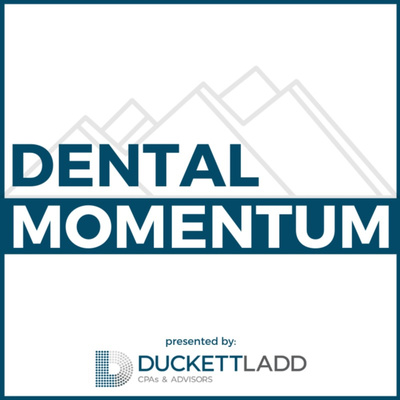When dentists think about their practice, the focus is often on patient care, advanced technology, and delivering exceptional outcomes for patients. Yet the foundation of a thriving dental practice goes beyond clinical excellence. Long-term success depends on sound financial management, strategic planning, and the ability to adapt to changing industry conditions.
This is where a dental CPAbecomes an essential partner. Unlike general accountants, dental CPAs specialize in the unique financial dynamics of dentistry. From navigating complex insurance reimbursements to managing overhead and preparing for ownership transitions, their expertise ensures that dentists can focus on patients while maintaining a strong and profitable practice.
By working with a dental CPA, dentists gain a partner who understands their industry, helps protect against financial risks, and creates strategies that align with long-term goals.
How a Dental CPA Provides Financial Analysis for Dental Practices
Financial analysis is the starting point of every sound business strategy. A dental CPA evaluates the current financial position of a practice by reviewing key data such as cash flow, overhead costs, production levels, and profit margins. This in-depth assessment highlights strengths while also identifying areas that need improvement.
For example, analysis may uncover supply costs that are higher than industry benchmarks or inefficiencies in collections that limit available cash. Addressing these issues early allows dentists to strengthen operations, reduce stress, and improve profitability.
Benchmarking is another important part of the process. By comparing performance against industry standards, a dental CPA helps practice owners understand whether they are leading, lagging, or on par with their peers. These insights empower dentists to make informed, confident decisions. Practices that partner with dental accountants to grow their practiceoften gain a clearer view of their financial health and a stronger foundation for long-term success.
Business Financial Planning with a Dental CPA
Business planning is far more than creating a budget. It is the process of setting realistic financial goals, forecasting future performance, and designing a step-by-step plan to achieve those goals. A dental CPA brings industry-specific expertise to this process, ensuring that your financial plan is both practical and aligned with the unique realities of running a dental practice.
This level of planning helps dentists secure financing for expansion, prepare for investments in new technology, and anticipate the impact of economic shifts. A business plan developed with the guidance of a dental CPA also serves as a tool for lenders and investors, demonstrating that the practice is financially disciplined and well-prepared for growth.
By creating financial models and forecasts, dental CPAs give practice owners a clear view of what to expect in different scenarios. This forward-looking approach transforms uncertainty into aan ctionable strategy, helping dentists manage their business with confidence. Many of these principles are part of building a financially resilient dental practice, where preparation today leads to stability and growth tomorrow.
Cost and Value of a Dental CPA
Many dentists see working with a dental CPA as an expense when, in reality, it is an investment with a measurable return. A dental CPA reduces unnecessary overhead, streamlines financial systems, and creates strategies to maximize revenue. Over time, these efficiencies generate significant savings and strengthen overall profitability.
For example, a dental CPA might renegotiate vendor contracts, improve tax efficiency, or identify underutilized revenue opportunities. These changes not only pay for the cost of the CPA’s services but also create lasting improvements to the financial health of the practice.
The true value lies in the long-term results. With a dental CPA on your team, you are not only keeping your books in order but also establishing a financial foundation that supports sustainable growth and enhances the value of your practice over time.
How a Dental CPA Guides Tax Planning and Compliance
Taxes are one of the largest expenses for any dental practice, and without proper planning, they can also become one of the greatest risks. A dental CPA brings specialized expertise to help practices remain compliant while minimizing their tax burden.
Proactive planning ensures dentists take advantage of available deductions and credits. For instance, equipment purchases, retirement contributions, and continuing education costs all have significant tax implications. A dental CPA helps structure these investments strategically, reducing liability and strengthening year-end results.
Equally important, dental CPAs keep practices aligned with ever-changing tax regulations. Errors in reporting or missed deadlines can result in penalties and audits, adding unnecessary financial stress. By combining compliance oversight with tax strategy, a dental CPA protects practices from costly surprises and supports long-term financial stability. Dentists who apply proven strategies for minimizing taxes in their practicecan often reinvest those savings into growth and patient care.
The Integration of Personal and Business Finance
For most dentists, the practice is not only a business but also their largest personal financial asset. A dental CPA recognizes the connection between professional and personal finances and creates plans that strengthen both.
This integrated approach ensures that decisions made for the practice — such as expansion, financing, or succession — are evaluated for their impact on your household finances and long-term goals. For example, paying down practice debt may increase equity, but it should also support your retirement planning. A dental CPA helps align these two worlds so that your practice success translates into personal financial security.
By balancing personal and business objectives, dental CPAs provide peace of mind and clarity for dentists and their families.
Dental CPAs and Succession Planning for Practice Owners
Every practice owner will eventually face the decision of when and how to transition out of ownership. A dental CPA plays a crucial role in preparing for this stage by assessing practice value, strengthening financial health before a sale, and planning for the tax implications of transferring ownership.
When succession planning is built into a long-term business strategy, dentists have more options, greater negotiating power, and increased confidence in the outcome. With the guidance of a dental CPA, the practice can be positioned for maximum value, ensuring that the transition is smooth, profitable, and beneficial for both owner and successor. Dentists preparing for retirement or ownership changes benefit greatly from structured dental practice business succession planningthat protects their financial legacy and supports continuity of care.
Advisory Services from a Dental CPA
A dental CPA is not only valuable during tax season or at the point of sale. Their role extends into ongoing advisory services that help dentists adapt to changing conditions and pursue new opportunities.
From evaluating whether to expand into multiple locations to assessing the financial impact of new technology, a dental CPA provides objective analysis and clear guidance. They also monitor industry benchmarks, regulatory changes, and market conditions so dentists can respond proactively instead of reactively.
This ongoing relationship ensures that dentists always have a trusted financial advisor available to provide clarity, reduce uncertainty, and guide decisions that shape long-term success.
FAQ: Working with a Dental CPA
What makes a dental CPA different from a general CPA?
A dental CPA specializes in the unique financial needs of dental practices, offering industry-specific insight into overhead, insurance reimbursement, compliance, and growth strategies.
When should a dentist hire a dental CPA?
Dentists benefit from working with a dental CPA during periods of growth, when planning for succession, or when facing cash flow challenges. Early engagement often creates the greatest long-term advantages.
How does a dental CPA help with taxes?
A dental CPA implements proactive tax planning strategies, aligns deductions with your business model, and ensures compliance with regulatory requirements. This protects your practice while improving financial outcomes.
Work With a Dental CPA for Your Business Financial Planning
A thriving dental practice requires more than clinical excellence — it requires financial clarity and confidence. With the guidance of a dental CPA, you gain a partner who understands your industry, strengthens your financial systems, and supports your long-term vision.
At Duckett Ladd, we work exclusively with dentists to help them achieve financial stability, growth, and peace of mind. If you are ready to strengthen your practice with the expertise of a dental CPA, let’s work togetherto create a plan that supports your future.
Disclaimer
Duckett Ladd, LLP does not provide tax, legal, or accounting advice. This content has been prepared for informational purposes only and should not be relied on for, tax, legal, or accounting advice. You should consult your own tax, legal, and accounting advisors before engaging in any transaction. Also, tax law is ever-changing, and every effort should be made to seek out the most current information. Make sure to check the date of published content to ensure the most current information.








